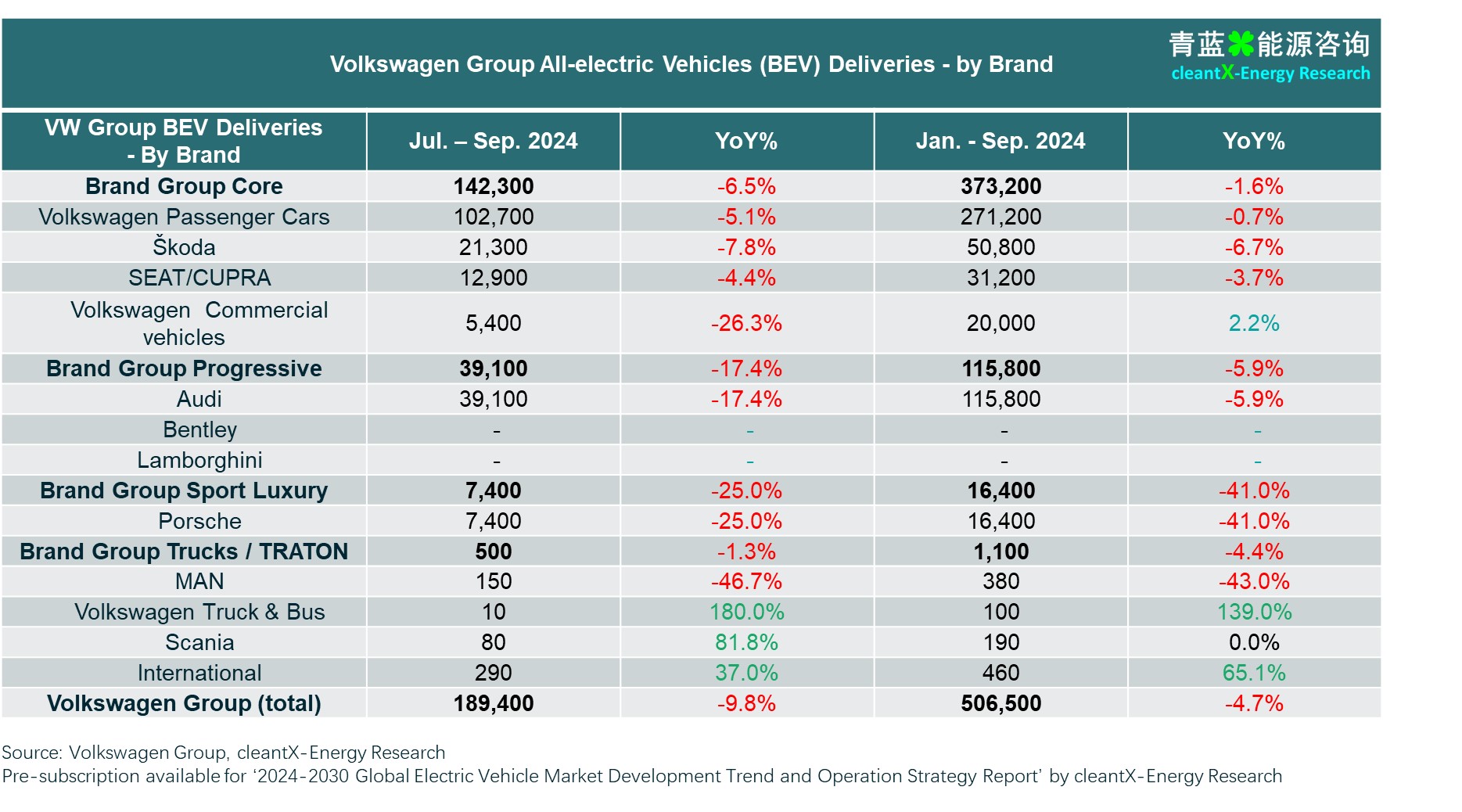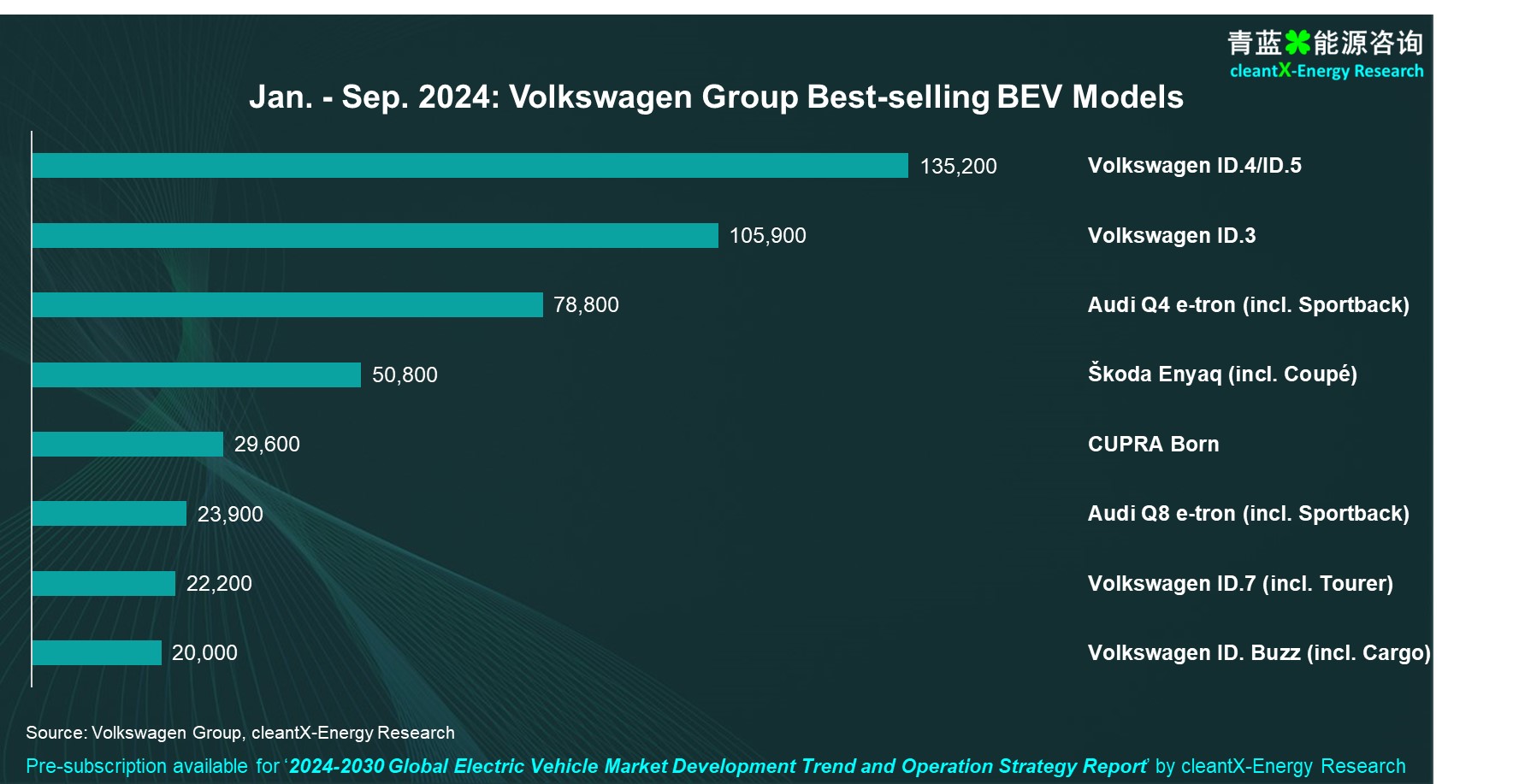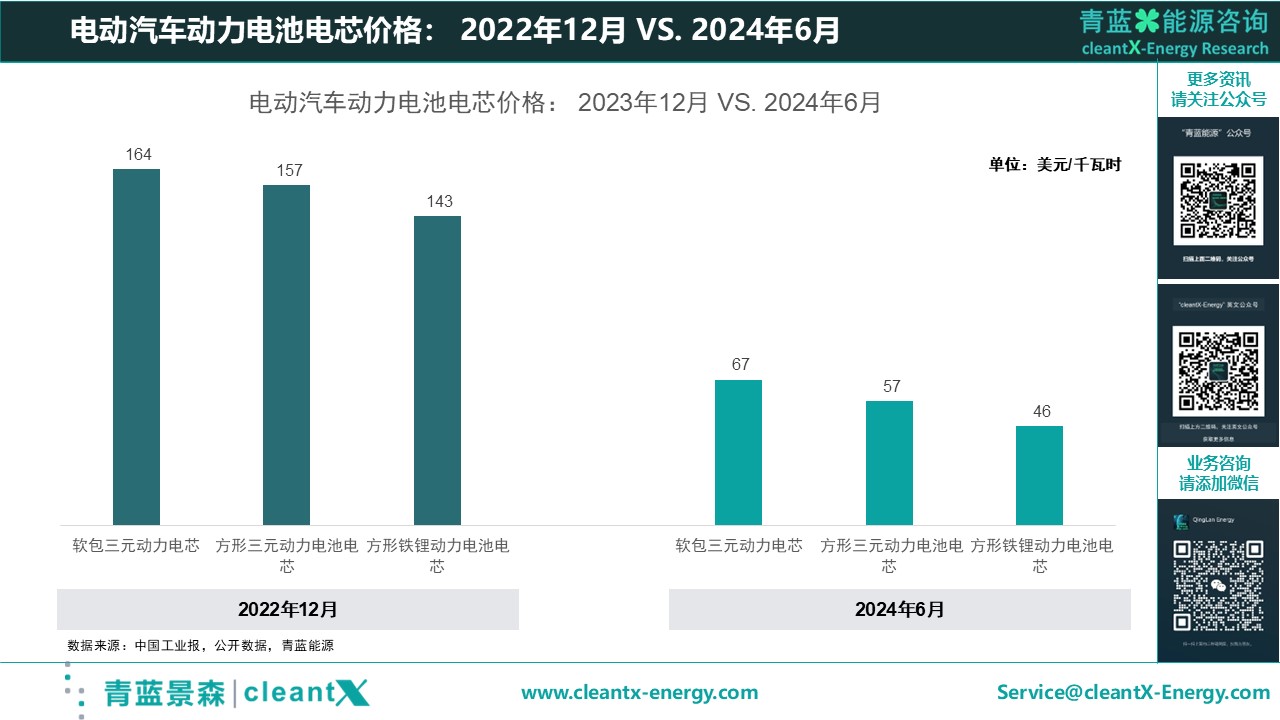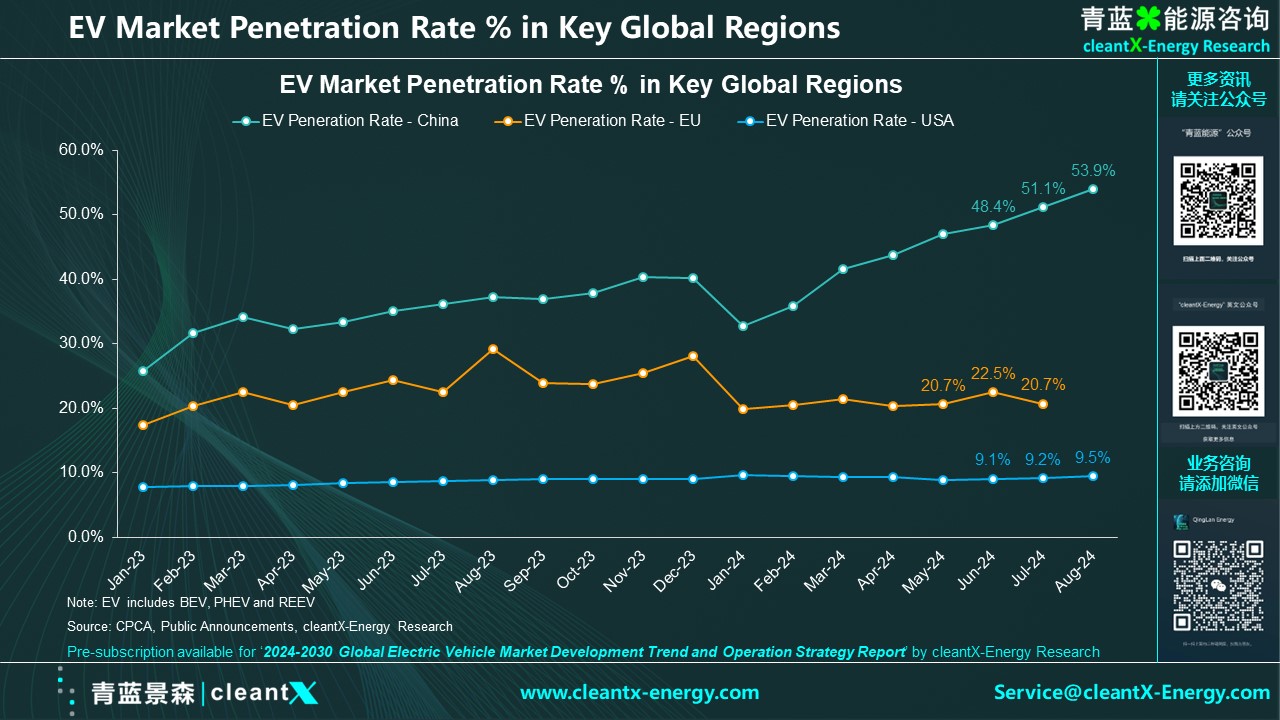Recently, the Volkswagen Group announced the latest global battery-electric vehicle (BEV) delivery data. Overall, the Volkswagen Group's Q3 deliveries saw a nearly 10% year-on-year decrease, with a nearly 5% year-on-year decrease in the cumulative deliveries for the first three quarters.
In Q3 of this year (July-September 2024), the Volkswagen Group's electric vehicle deliveries reached 189,400 units, a 9.8% decrease from 209,900 units in the same period in 2023. In the first three quarters of this year (January-September 2024), the Volkswagen Group delivered a total of 506,500 BEVs worldwide, a 4.7% year-on-year decrease from 531,500 units in 2023.
In Q3 of this year, the Volkswagen Group's global deliveries of all drive types amounted to 2.176 million vehicles, a 7.1% year-on-year decrease. In the first three quarters of this year, the cumulative global deliveries of all drive types by the Volkswagen Group were 6.52 million, a slight year-on-year decrease of 2.8%. In the first three quarters of this year, the Volkswagen Group's BEV deliveries accounted for 7.8% of all drive types, essentially flat compared to the same period last year, with only a slight decrease of 0.1 percentage points.
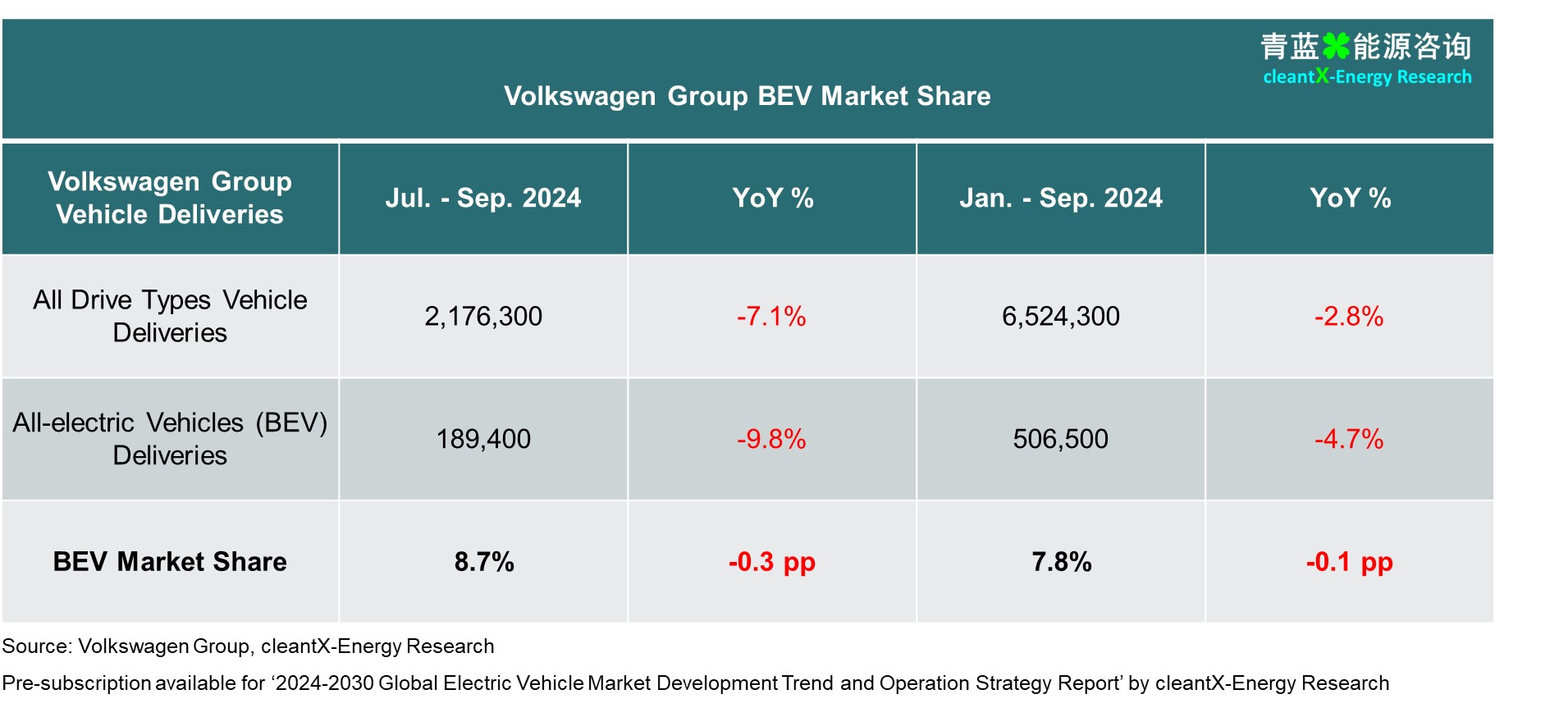
Looking at the main regional markets, the Volkswagen Group's BEV deliveries in Europe and North America both saw significant declines, but there was a counter-trend growth in China and other emerging markets. In Europe, the Volkswagen Group's BEV deliveries in Q3 decreased from 124,000 units last year to 109,200 units, a decrease of 11.9%. In the US, the Volkswagen Group's BEV business plummeted to 11,900 units in Q3, a nearly 42% decrease compared to the same period in 2023. However, in China, the Volkswagen Group's BEV deliveries reached 57,500 units in Q3, an increase of 5.2% from 54,700 units in the same period last year. It is worth mentioning that Volkswagen's cumulative BEV deliveries in China increased significantly by 26.5% to 148,100 units. The Volkswagen Group's BEV deliveries in other emerging markets also grew by 21.4%.
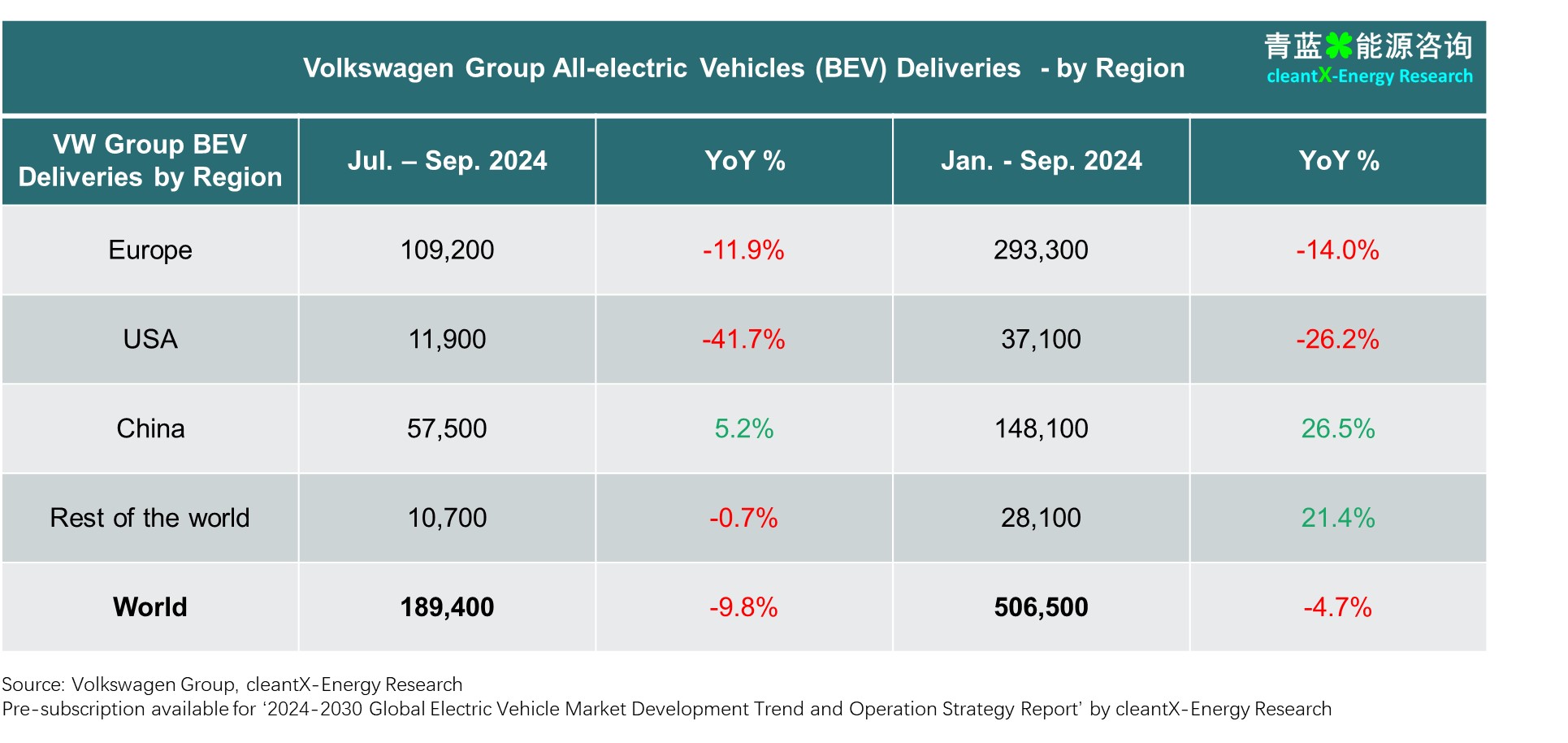
However, comparing the sales of all drive types in the main regional markets, in Europe , Volkswagen's deliveries of all drive types only decreased by 6.5% year-on-year to 860,600 units in Q3, while in North American, Volkswagen's deliveries of all drive types increased by 6.4% to 273,800 units. This indicates that the Volkswagen Group sold more internal combustion engine vehicles in Europe and North America. In contrast, in the Chinese market, the Volkswagen Group's deliveries of all drive types in Q3 fell more sharply, by 15%, and the cumulative deliveries from January to September also decreased by 10.2%, comparatively, Volkswagen's BEV sales in China increased by 5.2% and 26.5% respectively, indicating that Volkswagen's BEV sales in China offset the decline in sales of other drive types.
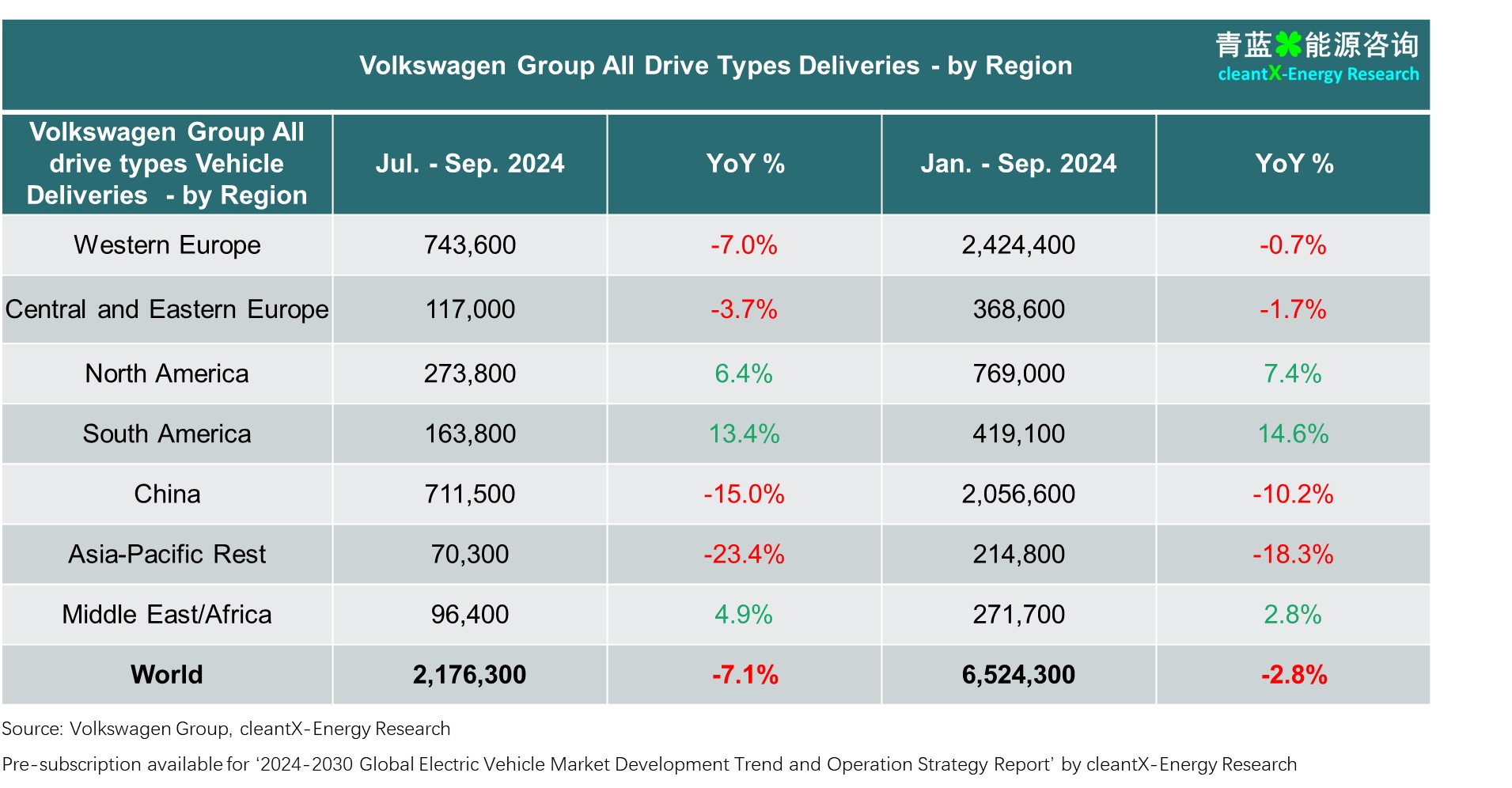
In terms of Volkswagen brands, the core passenger car brands (such as Volkswagen, Skoda, etc.) are the mainstay of the Volkswagen Group's BEV sales, accounting for three-quarters of its overall BEV sales. However, the BEV sales of these core passenger car brands, as well as premium brands (such as Audi, Bentley, and Lamborghini) and luxury brands (Porsche) are all showing a downward trend. In contrast, the absolute sales of Volkswagen's pure electric truck brands (such as Volkswagen Truck & Bus, Scania, etc.) are relatively low but show strong growth momentum.
In terms of specific models, the Volkswagen Group's top-selling pure electric models in the first three quarters of this year were mainly the ID.4/ID.5 and ID.3, with 135,200 and 105,900 units respectively. The premium brand's electric models were mainly the Audi Q4 e-tron and Audi Q8 e-tron (including Sportback), with sales of 78,800 and 23,900 units respectively.
In addition to the 506,500 BEVs, the Volkswagen Group also delivered 192,000 plug-in hybrid electric vehicles (PHEVs) globally in the first three quarters of this year, marking a significant 9% year-on-year increase.






